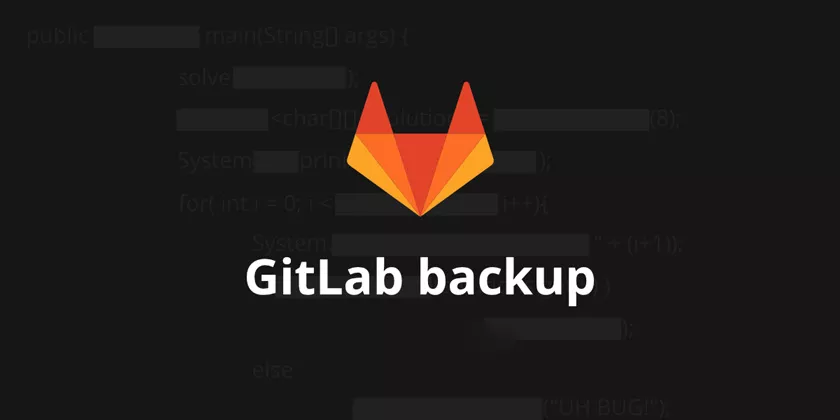Backing up data is one of the best ways to ensure security and integrity in case of ransomware or cyber-attacks. Most hackers steal the data and sell it on the dark web. However, many backup solutions can help businesses and individuals keep their data safe.

Back-Up Your Gitlab Data: How-To and Benefits
GitLab is a famous tool used by software developers. It is cloud-based and allows users to save their code, track changes, and collaborate with other developers. GitLab has the best features to help boost performance, operations, and security.
Why You Should Back Up Your Gitlab Data
Gitlab offers data security in case of accidental deletions, hardware breakdowns, or cyber-attacks. Users can create remote repos and push their code to cloud storage from their local PC.
Other members with access to the repo can create issues, merge requests, and create CI/CD (continuous integration/continuous delivery) pipelines.
Users can also track changes made to their code and revert to instances where it worked well. Having a GitLab backup allows developers to quickly pull the code from their repo and create a copy on their PC. This helps reduce downtime times and improves disaster recovery in case of a hack or server downtime.
Strict rules apply when it comes to data sharing. GitLab has all of these taken care of on your behalf. You can use the available license, especially if you want to make your code public and available for open-source development.
How to Back Up Your GitLab Data
You can choose to use manual backup or third-party backup to back up your GitLab data. GitLab comes with an in-built backup feature, which makes the backup process simple.
The feature creates archived backups of your repository, metadata, and database on your PC. Users can later use a command function to create GitLab backups.
However, creating scripts and commands to automate your backup can be challenging for some people. Here is where third-party backup services for GitLab come in. The third-party backup service is offered as a backup-as-a-service platform.
The app backups your GitLab data automatically, thus helping you streamline your processes. The app also uploads the repos in their entirety from the code to the comments and all attachments available. You can download or pull the code from your GitLab account at any time.
Benefits of Backing Up Your GitLab Data
You can recover all of your data at any time, which is a plus when working remotely or in case of data loss. GitLab has a 90-day recovery period, which allows users to access deleted repos.
You can use third-party backup apps to recover your data faster to reduce downtime.
GitLab third-party backup apps also ensure that your data is GDPR compliant. This compliance standard is proof that you take data security seriously and have the right processes and systems to protect sensitive data.
Wrapping Up
Having efficient way to back up your GitLab data is very important. Nonetheless, manual backup is prone to human error. Automate the backup process using scheduled tasks or backups-as-a-service platforms to ensure that the processes are performed consistently and reliably.
